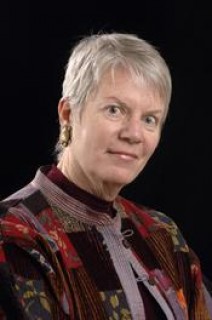The recent discovery of Earth-like planets has changed the way scientists look for life on other planets, according to the scientist who inspired Jodie Foster’s character in “Contact,” a 1997 film about the search for extra-terrestrial intelligence.
Astronomer Dr. Jill Tarter, director of the SETI Institute’s Center for SETI Research in California, has devoted her career to the search for signs of intelligent beings elsewhere.
There’s always been a fascination with the possibility intelligent life exists beyond our planet. Last year’s discovery of a super-Earth planet some 600 light years away, which might support human-like life, added to that excitement.
Modern efforts in the search for extra-intelligence beyond Earth (SETI) can be traced back to the brilliant inventor Nikola Tesla who, in 1896, suggested that radio could be used to contact extraterrestrial life.
Today, several scientific organizations, including the SETI institute, use sophisticated technology, such as powerful radio-telescopes, to search for intelligent forms of life somewhere out in the cosmos.
So, are we alone in the universe?
“Actually, I don’t know,” she says. “That’s what we’re trying to do at the SETI Institute, to look for evidence of someone else’s technology and thereby, perhaps, answer this old, old question.”
According to Tarter, the discovery of the exoplanets has “profoundly changed the way we do our business.”
In the past, Tarter and her colleagues just pointed their telescopes at stars they thought might be suitable hosts for planets that could support life.
But the discovery of the exoplanets and the data being sent back to Earth by the Kepler mission have changed that.
“It’s a whole new ballgame because we know where those planets are, so we now know where to point our telescopes” she says, “and we know we’re pointing at a planetary system. And since life, as we know it, is a planetary phenomena, we think this is a good place to look, and so we think it has improved the odds that someday we might be successful, because we’re now looking in the right places.”
So far, the Kepler mission has found about 2,000 exoplanet candidates, while Earth-based telescopes have found nearly 1,000 more.
Although a recent Princeton study found little supporting scientific evidence that life could exist beyond our own planet, Tarter says there’s also very little evidence that extraterrestrial life doesn’t exist.
“We are out of evidence from either side of the argument,” she says.
SETI research, she believes, is worth at least a small investment to try answer the old question of whether there is life beyond our planet.
“Everything we’ve learned over the past few decades tells us that life, in fact, could be more prevalent than we once might have thought,” Tarter says.
She points to past and current research that shows planets are abundant.
“We’re not quite there yet, but we can almost taste it,” Tarter says. “It seems that, from what we now know, [it’s] quite inevitable that there will be Earth analogs out there.”
The combination of research into microbial life living in extreme conditions here on Earth, along with the existence of exoplanets, “make the universe appear more bio-friendly than we once might have guessed.”
Dr. Tarter appears this week on the radio edition of “Science World.” She’ll discuss how ordinary people can help search for extraterrestrial intelligence by trying out SETILive the SETI Institute’s new citizen science project, see right column for scheduled times, or check out the full interview with Dr. Tarter below.
[audio://blogs.voanews.com/science-world/files/2012/05/One-On-One-Dr.-Jill-Tarter-SETI-Web-Edition.mp3|titles=One On One – Dr. Jill Tarter – SETI – Web Edition]Other stories we cover on the “Science World” radio program this week include:
- First US commercial resupply mission to the ISS postponed again
- Use of midwives improves maternal healthcare in rural Nigeria
- US farmers use GPS to save money, help the environment
- Australian researchers explore “extreme” earthquakes
- Warmer ocean speeds melting of Antarctic ice-shelves






















Comments are closed.